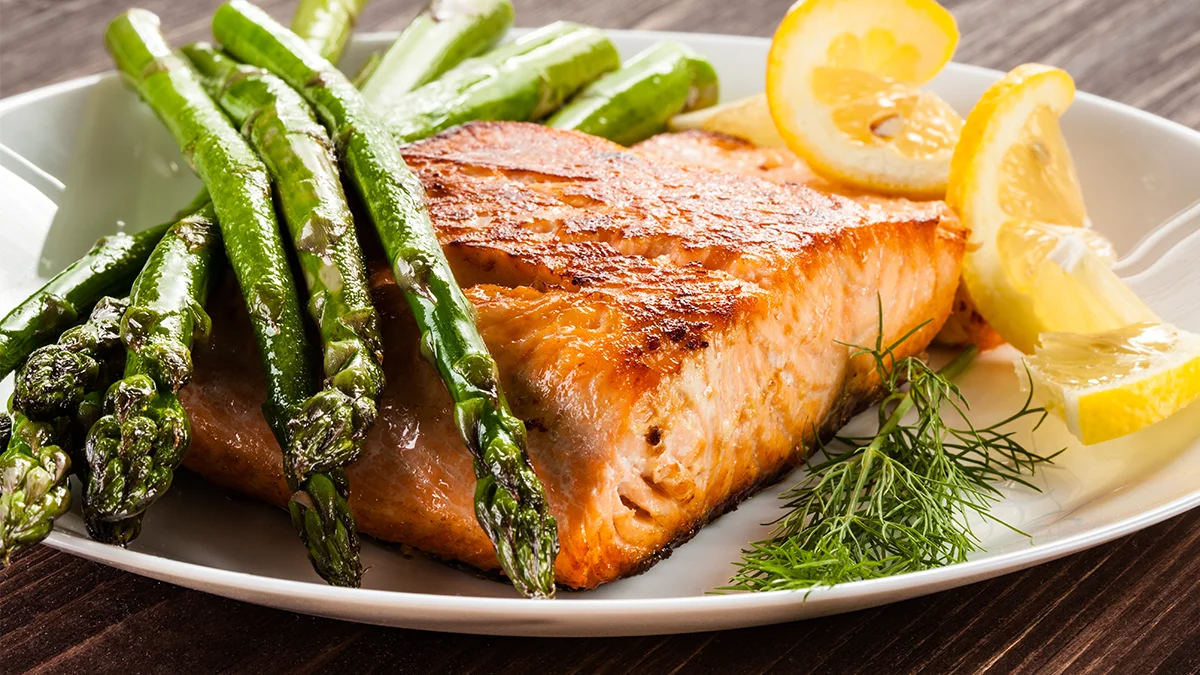As you approach retirement, your health becomes one of your most valuable assets. And while many pre-retirees focus on financial security, another area that deserves equal attention is your mental health, specifically your brain.
Mental sharpness is crucial for making informed financial decisions and maintaining the lifestyle you’ve worked so hard to achieve. Fortunately, one of the simplest ways to support brain health is through your lifestyle choices, including the foods you eat.
In this article, we’ll explore the best foods for brain health so you can stay focused, protect your memory, and enjoy a long, fulfilling life.
Why Brain Health Matters for Pre-Retirees
Many people spend their working years thinking about how to build wealth. But when clients come to us, they’re often shifting that focus on how to protect and enjoy what they’ve built. Physical and mental health, as well as clarity, play key roles in that process.
Poor nutrition can lead to brain fog, fatigue, mood swings, memory lapses, cancer, and more. However, the right foods can help reduce inflammation, regulate blood sugar levels, and support long-term cognitive function.
Always consult with a qualified healthcare professional before making any dietary or health-related changes.
-
Fatty Fish and Other Healthy Fats
Fatty fish such as salmon, mackerel, and sardines are rich in omega-3 fatty acids, particularly DHA and EPA. These essential fats are a major building block of the brain, helping to support memory and communication between brain cells. Other healthy fats include olive oil, avocados, flaxseeds, and coconut oil.
Tip: Aim to eat fatty fish at least twice a week. If you don’t enjoy fish, talk to your doctor about a quality omega-3 supplement.
-
Leafy Green Vegetables
Leafy greens, such as spinach, kale, and chard, are rich in essential nutrients like vitamin K, lutein, folate, and beta-carotene. These antioxidants help slow cognitive decline and protect brain cells from damage. Many healthcare providers recommend nine daily servings of healthy vegetables.
Tip: Add a handful of spinach to your smoothie, sauté kale with garlic, or make a salad with mixed greens.
-
Blueberries
Often referred to as “brain berries,” blueberries contain anthocyanins—antioxidants that help reduce inflammation and support brain signaling. Research shows they may improve memory in older adults and delay brain aging.
Tip: Eat them fresh, frozen, or blended into a protein smoothie.
-
Avocados
While avocados are a source of healthy fats, they also support healthy blood flow and lower blood pressure, both of which are essential for optimal brain function.
Tip: Add half an avocado to your morning toast, slice it into a salad, or blend it into a smoothie for creamy texture and sustained energy.
-
Walnuts and Other Nuts
Nuts, especially walnuts, are packed with DHA, vitamin E, and plant-based protein—all of which are linked to better cognitive function and memory. They also help stabilize blood sugar and reduce oxidative stress. Other good choices include pecans, pistachios, and macadamia nuts.
Tip: A small handful (about 1/4 to 1/2 a cup) per day is plenty.
-
Turmeric
Turmeric contains curcumin, a compound with strong anti-inflammatory and antioxidant properties. Curcumin may help support memory, reduce symptoms of depression, and promote the growth of new brain cells.
Tip: Add a teaspoon to soups, stews, or roasted vegetables. Combine with black pepper for improved absorption.
-
Dark Chocolate
Dark chocolate (with at least 70% cocoa content) contains flavonoids that may enhance memory and improve brain plasticity—the brain’s ability to form new connections.
Tip: One or two small squares can be part of a healthy diet. Choose high-quality dark chocolate and avoid those with added sugars. It is best to eat dark chocolate earlier in the day as it contains caffeine.
-
Green Tea
Green tea contains both caffeine and L-theanine, a combination that promotes calm focus without the jitters of coffee. It also contains antioxidants that protect brain function.
Tip: Drink a cup in the morning or early afternoon as a replacement for coffee or sugary drinks. It is best to limit caffeine and avoid it later in the day.
What to Reduce or Avoid
Focusing on foods that support brain health also means limiting those that do not. These include:
- Processed and packaged foods
- Refined sugars
- Excess alcohol
- High-sodium foods
- Artificial sweeteners
These foods can cause inflammation, energy crashes, and long-term damage to brain function. Small adjustments in your diet can make a measurable difference in your quality of life.
Your Brain Health Strategy
The goal is progress, not perfection. You don’t need to overhaul your diet overnight. Instead, focus on what you can add to your current routine. Many experts recommend beginning by adding healthy choices to your current diet. This often helps to avoid the hunger and cravings of the less than optimal food choices.
A good place to begin is by asking a few questions.
- What is one food I can add today that supports brain health?
- Can I swap a processed snack for something whole and nutrient-dense?
- How can I plan meals that support energy, clarity, and focus?
A brain-healthy diet is essential because your health, like your wealth, depends on consistent action guided by the right strategy.
Conclusions – Best Foods for Brain Health
Your brain is one of your most important factors in achieving success. Keeping it sharp helps you make better decisions, manage stress effectively, and appreciate the people and experiences that matter most.
By incorporating the best foods for brain health into your weekly meals, you are investing in more than your body—you’re protecting your ability to live life on your terms.
Click here to get your free resource:

Disclosure
The Millionaire Insider® copyrights all materials and intellectual property.
This information is for educational purposes only. It is not intended to replace the advice of any advisor or specialist, nor to provide investment, financial, tax, retirement, planning, or healthcare advice.
Always consult with a qualified professional before making any financial decisions or changes.
